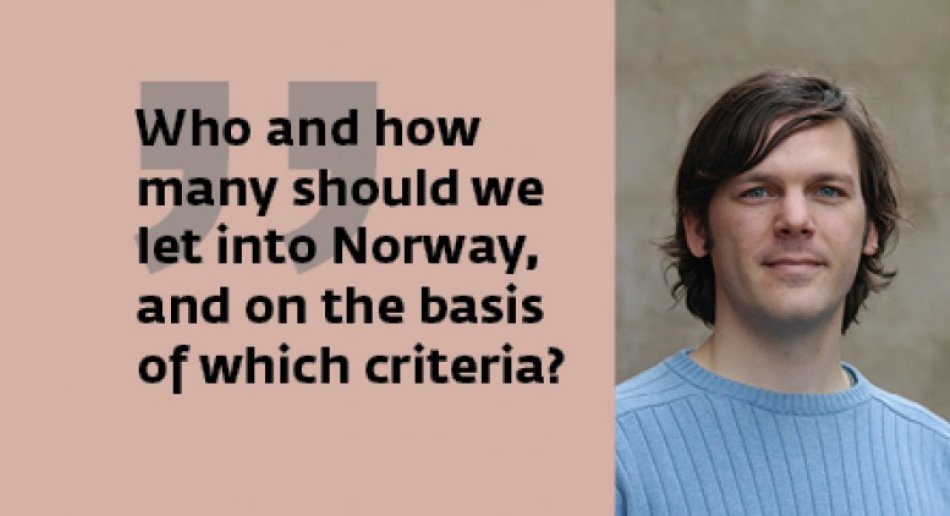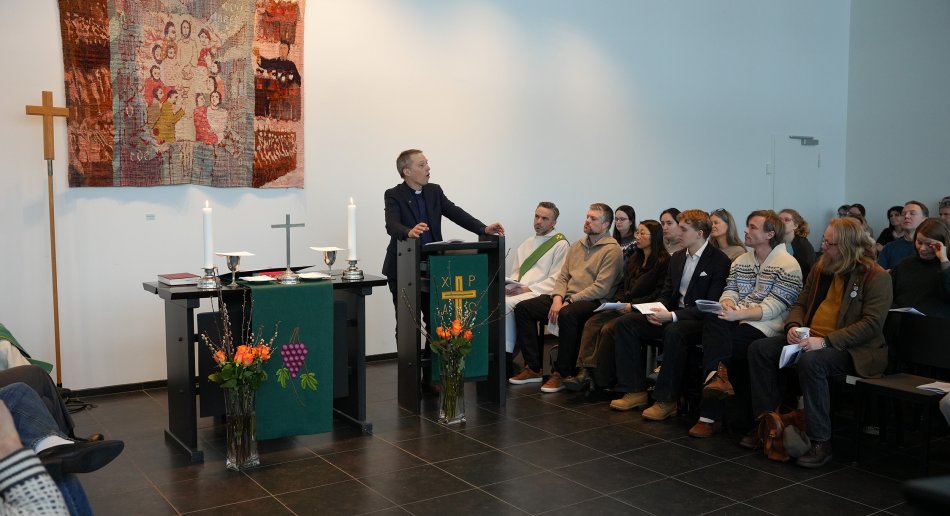
The Ethics of Norwegian Immigration Policy
Who and how many should we let into Norway, and on the basis of which criteria, asks MF-professor Asle Eikrem.
Asle Eikrem is professor of Systematic Theology at MF. His primary areas of research are connected to subdisciplines in systematic theology, primarily philosophy of religion, dogmatics and ethics.
(translated by Andrew D. Wergeland)
– In connection with this question, I also touch upon the problems concerning how we ought to evaluate ethically the criteria used by the Norwegian government to regulate immigrants' possibilities for naturalization, i.e. permanent residency and citizenship, says Eikrem.
He is professor of systematic theology and is now researching migration ethics. In his latest work, he examines Norwegian immigration policy from an ethical perspective.
Complex
Eikrem says that the first thing that struck him when he now sits and thinks through different reason for why Norway ought to regulate immigration in certain ways is the complexity of the problem.
– Opposite views can in many cases be supported by good arguments, and it isn't easy to judge which are to be given the most weight. At the current time in the process though, I still believe that I contribute to increasing the level of precision a good deal, that I help to sort through good and not-so-good arguments for different views, and that I formulate a position that both supports and challenges Norwegian policy aimed at different groups of immigrants, says Eikrem.
He emphasizes that immigration policy has to do with basic questions about how people are to live together, both locally, nationally and globally. When dealing with immigrants, the Norwegian government is put in contact with extremely vulnerable people who have taken great risks in order to come to Norway's borders.
The Role of the Welfare State
– The question of how we are to weigh their interests in comparison with the interests of Norwegian people leads us to many ethical dilemmas. How are we, for example, to weigh immigrants' interests in comparison with the interests of groups in our society that struggle in different ways? The answer to this question requires among other things careful consideration of the role of the welfare state in international society, says Eikrem.
He asks such questions as: Can the welfare state really be safeguarded by preventing poor (sometimes persecuted) people from participating in the Norwegian societal project? Is the continued existence of the Norwegian welfare state dependent upon the deep differences in the global economic order not coming to an end?
Another question he asks, which shows how important thorough ethical reflection is, is the question of whether a liberal immigration policy is the best way to help people in need, or whether we ought to help them where they are?
– We know that it is usually not the poorest who are able to get to our borders. One component of a strategy that takes care of these as well could be to make sure that the most resourceful (primarily immigrant workers) remain in the societies where they are needed most (the so-called brain-drain problem). But can we "force" them to do it, or should they be able to choose for themselves which societal project they want to participate in?
Eikrem asks many difficult questions, and says that these are just a few examples of problems where practical political solutions have sometimes dramatic consequences for individuals and for how we live together in the world.
Controversial Topic
– What is currently happening in the field of research on this topic?
– Immigration was for a long time a topic that was researched little from an ethical perspective. In the last 10-15 years, however, a lot has happened. Perhaps especially the role of the welfare state has been debated quite a bit, especially here in Norway. Internationally, the question of how different countries ought to apportion their obligations towards immigrants is discussed quite a bit. Which factors are the most ethically relevant and important when responsibility is to be divided up? Here, political profile, population, population density, the country's economic situation, cultural and/or ethnic affinity, history, etc. can play a role.
Immigration policy is among the most distinct and controversial topics in today's political landscape.
– Many important and good arguments are familiar to those who more or less keep up with the media's presentation, but the answer to the question of what weight they have in relation to each other is in no way immediately apparent, says Asle Eikrem.
Forskning



